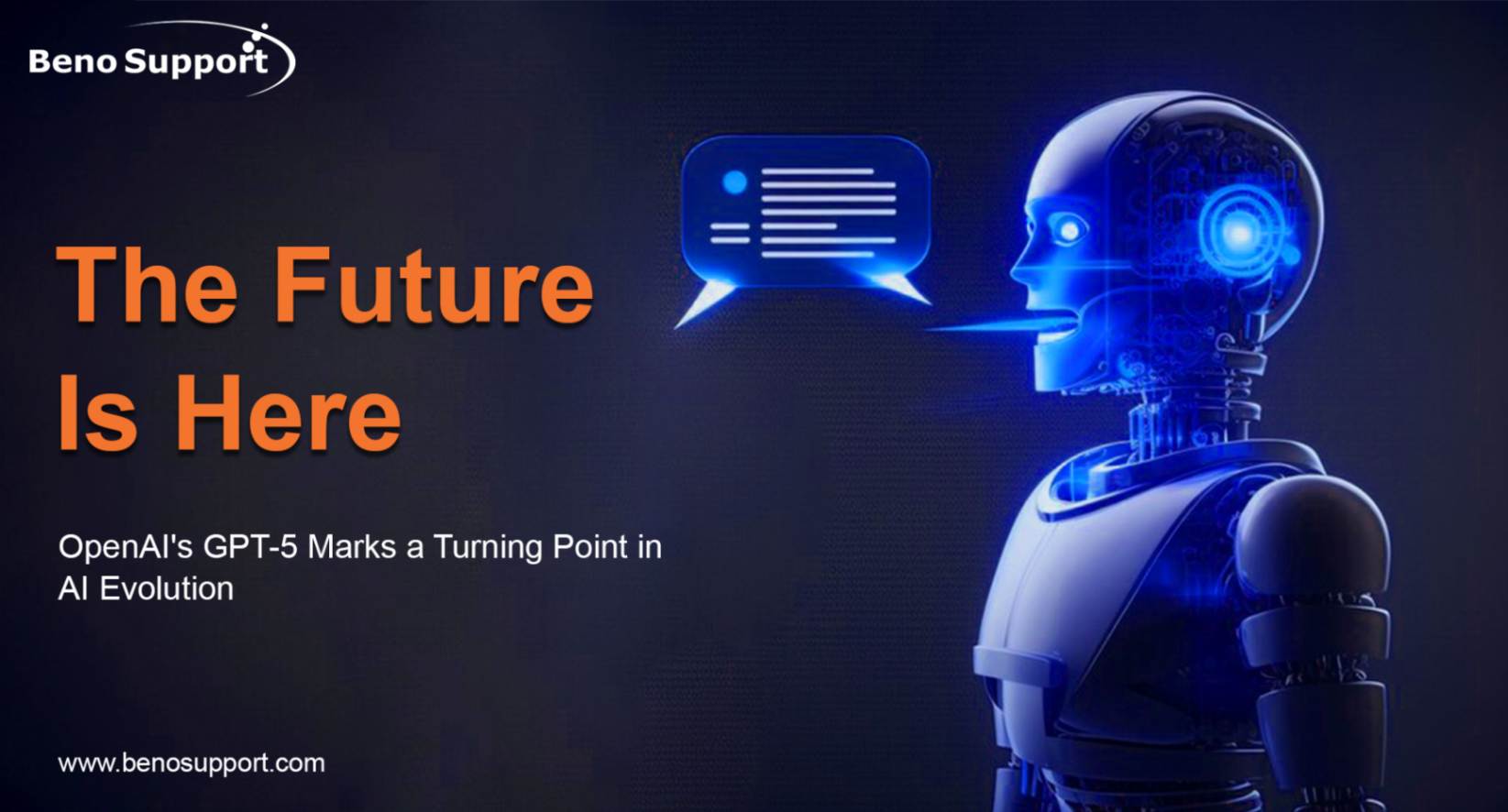The world of technology is abuzz with the recent unveiling of OpenAI's GPT-5, a revolutionary large language model that promises to be a game-changer. This isn't just another advancement in AI; it's a significant leap forward, marking a turning point in the evolution of artificial intelligence.
For tech enthusiasts, companies, decision-makers, and anyone interested in the future of technology, GPT-5 holds immense potential. Let's delve into how this innovation can impact various sectors, specifically focusing on HR and talent acquisition, software development, and mobile application development services.
Revolutionising HR and Talent Acquisition
The talent landscape is constantly evolving, and GPT-5 has the potential to disrupt how businesses attract, recruit, and retain top talent. Here are two key ways it can transform HR:
- Unveiling Hidden Gems: Imagine a world where AI can analyse vast amounts of data to identify potential candidates who might not have the most traditional resumes. GPT-5's ability to understand complex information and identify hidden patterns can help Talent Acquisition discover exceptional talent based on skills, experience gleaned from online content, and even communication style. This can open doors for a more diverse and qualified talent pool.
- Personalised Candidate Journeys: The days of generic job descriptions and impersonal application processes might soon be behind us. GPT-5 can be used to create customised candidate experiences. Imagine AI chatbots that answer applicant questions in a natural, engaging way, or personalised interview preparation tools that adapt to individual needs. This can not only improve the candidate experience but also attract top talent who value a human-centric approach.
Empowering Software and Mobile App Development
The world of software and mobile application development is constantly pushing boundaries. GPT-5 can act as a powerful catalyst for this progress:
- Supercharged Development Processes: GPT-5's ability to generate code can significantly accelerate the development process. Imagine AI assistants that can write clean, efficient code based on developer specifications. This can free up valuable time for developers to focus on complex problem-solving and innovation.
- Enhanced User Experience: GPT-5 can be used to create highly intuitive and interactive user interfaces. AI can analyse user behaviour data and suggest improvements to app design and functionality. This can lead to a more seamless and personalised user experience, keeping users engaged and coming back for more.
Beyond the Hype: Embracing the Future Responsible
Even though GPT-5 presents exciting opportunities, it is essential to handle this technology with a strong sense of responsibility. Here are two key factors to keep in mind:
- The Value of Human Interaction: Despite AI's ability to automate tasks and improve operations, the unique expertise and creativity of humans will forever be irreplaceable. Instead of viewing GPT-5 as a substitute, businesses should see it as a tool to support and empower their teams.
- Ethical Considerations: Just like any advanced technology, ethical considerations are crucial. Companies need to guarantee the responsible and unbiased use of GPT-5. Having well-defined guidelines and training data for AI development is essential to promote fair and ethical practices.
The Future Awaits
OpenAI's GPT-5 signifies a pivotal moment in the evolution of AI. This advancement offers a chance for technology enthusiasts, businesses, and leaders to reshape numerous sectors. Whether it's enhancing HR and Talent Acquisition or boosting software and mobile app creation, the possibilities are endless. Yet, it's crucial to approach this future with care, ensuring that AI continues to be a force for advancement and beneficial transformation. As we progress, the collaboration between humans and AI will be essential in realising the full capabilities of this innovative technology.





